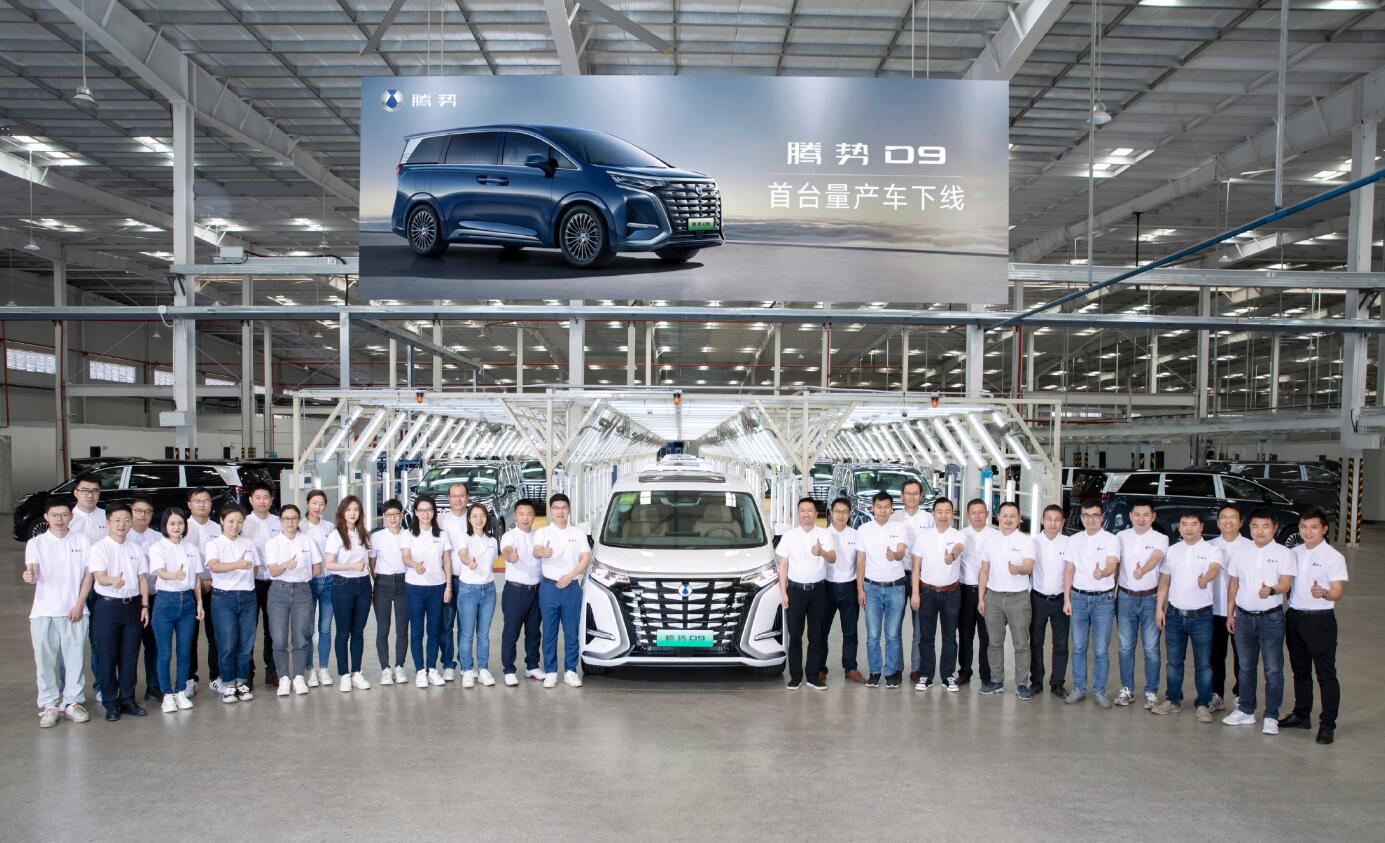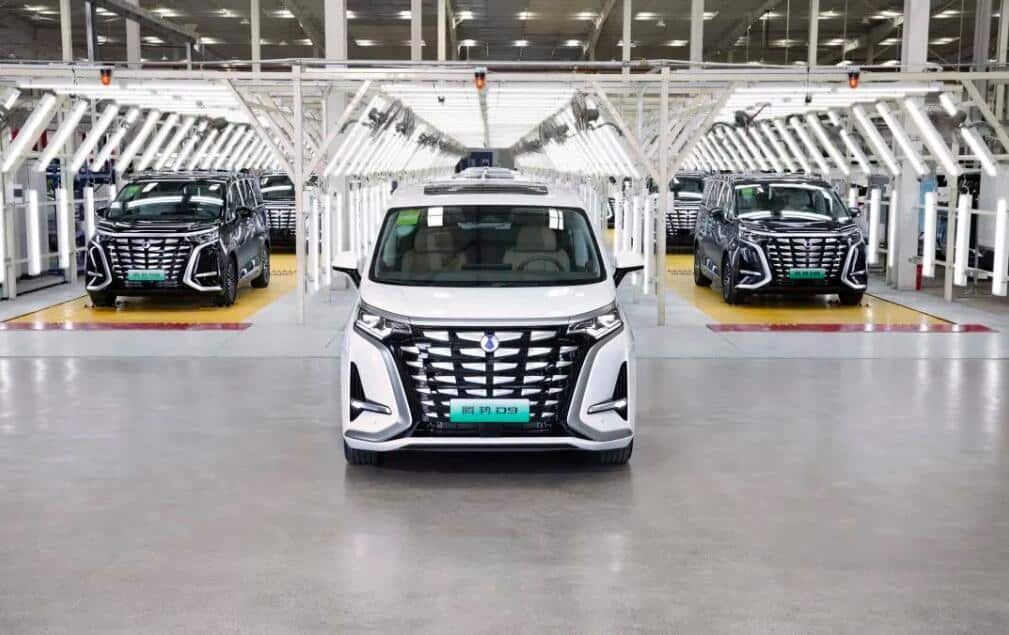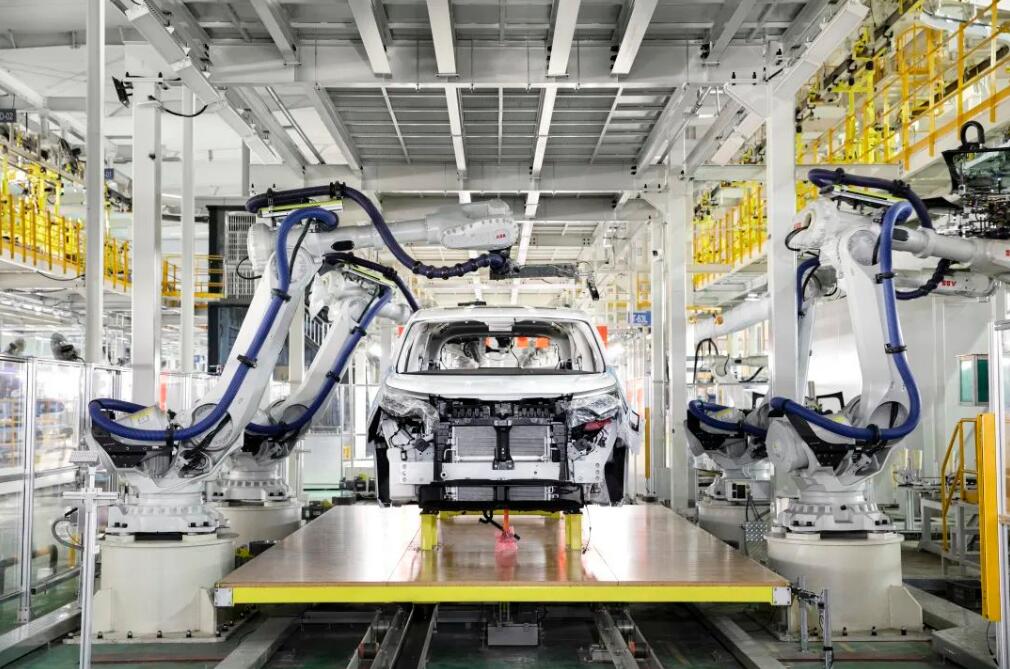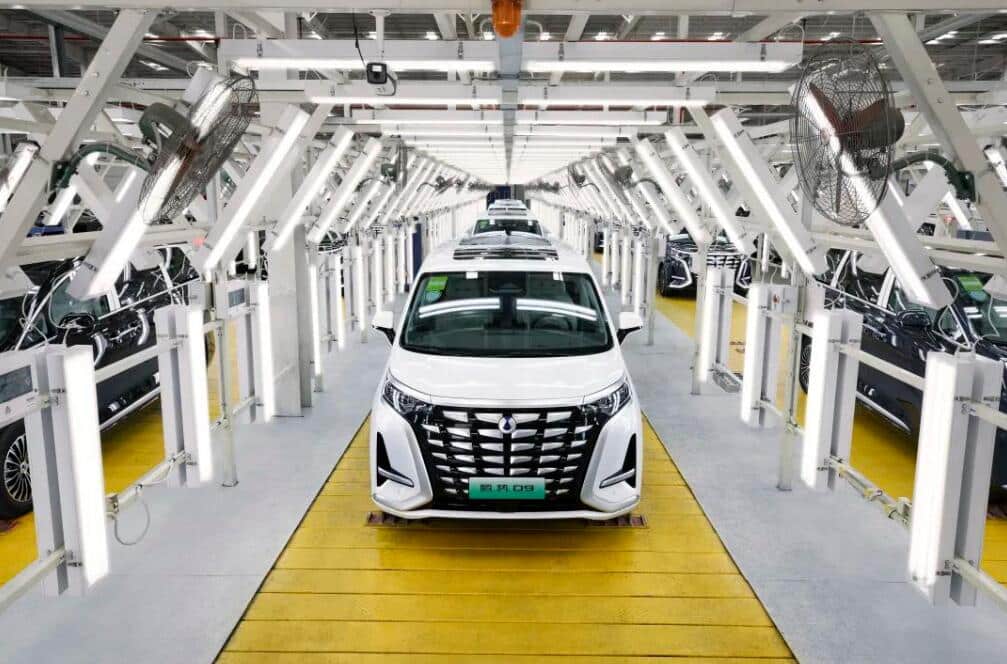Denza management had previously expected 10,000 units of the model to be delivered in December, although the current delivery schedule has been delayed from the previous one.
Denza, a joint venture between BYD and Mercedes-Benz Group and is majority owned by BYD, saw the first production vehicle of its D9 MPV roll off the production line, after a delay in the original delivery schedule.
The first production unit of the Denza D9 officially rolled off the production line today, Zhao Changjiang, general manager of the brand's sales division, said on Weibo on October 21.
The model will begin shipping to Denza outlets in various cities on October 23 and deliveries to owners will begin, according to the Weibo post.
Since its launch on August 23, the Denza D9 has accumulated more than 30,000 orders with non-refundable deposits, according to Zhao.
Shenzhen Denza New Energy Automotive Co Ltd is a joint venture established in February 2011 by BYD and Daimler, with each holding a 50 percent stake, the first Sino-foreign joint venture in China to focus on new energy vehicles (NEVs). In February 2022, Daimler AG was rebranded as Mercedes-Benz Group.
On January 24, BYD said in an announcement that it signed an equity transfer agreement for Denza with Daimler, which will increase BYD's stake in the company to 90 percent and reduce Daimler's stake to 10 percent. The share transfer has now been completed.
The Denza D9 offers a choice of two power forms, including a hybrid version using BYD's DM-i system and an all-electric version.
The hybrid version is available in four options with a price range of RMB 329,800 ($45,510) to 439,800. The all-electric version of the Denza D9 is offered in three options with a price range of RMB 389,800 to RMB 459,800.
On September 2, Zhao had said on Weibo that the Denza D9 will start deliveries at the end of September, with deliveries expected to be in the hundreds.
By October, the model is expected to deliver more than 3,000 units, reaching 5,000-7,000 units in November, 10,000 units in December and 10,000 units in January, Zhao previously said.
That's already a month later than the planned start date for deliveries, which Zhao said at the time was influenced by European suppliers and the Covid outbreak in Shanghai.



